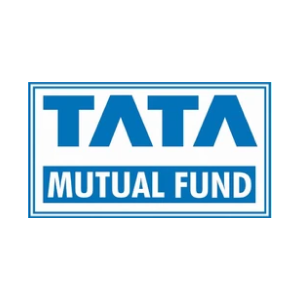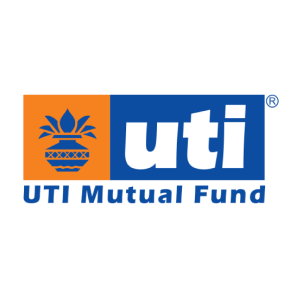Money Market Funds
Money Market Funds are short-term debt funds. These funds allocate investments to a variety of money market instruments with an average maturity period of 1 year.
6 to 12 Months
27 Funds
₹3,61,787 Cr Total AUM

Money Market Funds are short-term debt funds. These funds allocate investments to a variety of money market instruments with an average maturity period of 1 year.
6 to 12 Months
27 Funds
₹3,61,787 Cr Total AUM

Sort By
| Fund name | Fund size | Expense Ratio | 3Y Returns |
|---|---|---|---|
 Tata Money Market Fund Direct Growth Money Market Low to Moderate Risk | ₹40,598 Cr | 0.15% | 7.7% |
 Axis Money Market Fund Direct Growth Money Market Low to Moderate Risk | ₹24,193 Cr | 0.17% | 7.7% |
 Aditya BSL Money Manager Fund Direct Growth Money Market Moderate Risk | ₹32,710 Cr | 0.22% | 7.6% |
 Nippon India Money Market Fund Direct Growth Money Market Moderate Risk | ₹24,260 Cr | 0.22% | 7.6% |
 UTI Money Market Fund Direct Growth Money Market Low to Moderate Risk | ₹22,197 Cr | 0.14% | 7.6% |
 Franklin India Money Market Fund Direct Growth Money Market Low to Moderate Risk | ₹4,421 Cr | 0.14% | 7.6% |
 Bandhan Money Manager Fund Direct Growth Money Market Low to Moderate Risk | ₹14,346 Cr | 0.1% | 7.6% |
 ICICI Prudential Money Market Fund Direct Growth Money Market Low to Moderate Risk | ₹36,028 Cr | 0.21% | 7.6% |
 HDFC Money Market Fund Direct Growth Money Market Low to Moderate Risk | ₹37,517 Cr | 0.23% | 7.6% |
 Kotak Money Market Scheme Direct Growth Money Market Low to Moderate Risk | ₹36,157 Cr | 0.21% | 7.6% |
Money market funds are debt funds that invest in debt securities with less than 1 year of residual maturity.
Money market funds are ideal if you are looking for a combination of:
*The returns of money market funds are typically in line with the prevailing short term interest rates in the debt market.
Additionally, these funds are ideal for short investment horizons like a few months to a couple of years.
If you have a shorter investment horizon, other debt fund categories like overnight funds and liquid funds can be considered to keep risks in check. On the other hand, for longer investment horizons, other aggressive debt, hybrid, and equity funds with higher return potential can be considered.
Money market funds primarily invest in very short term securities to stay true to their mandate. Some of them are Treasury Bills (T-Bills), Commercial Papers (CPs) and Certificates of Deposits (CDs).
The instruments that money market funds invest in are also available to retail investors for investment. But there are two problems:
By investing through money market funds, both the problems get solved. Not only can you invest in money market funds with amounts as low as Rs. 500 but also avail of professional management to save time and effort, and avoid potential mistakes.
As we saw, money market funds invest in very short term securities. By doing this, they substantially reduce the ‘interest rate risk’ that is associated with investing in debt instruments.
The average credit quality of all money market funds is AAA. This means that most securities that money market funds invest in are of the highest credit quality which reduces ‘credit risk’, the other major risk of investing in debt instruments.
Source: Valueresearch | As of Nov, 2023
Because of the low interest rate and credit default risks, money market funds offer safety and stability of returns.
Money market funds are ideal for short-term investments (a few months to a couple of years) because of their liquidity, stability of return and principal protection features.
Here are a few situations we feel money market funds may fit well:
Most fixed deposits are booked for a few months to a couple of years, the timeframe for which money market funds are ideal for investments.
Money market funds have the potential to deliver better returns than fixed deposits and are taxed only when you redeem from them.
However, fixed deposits of up to Rs. 5 lakh per depositor per bank are insured by a government agency. Money market funds, although low risk, are not insured.
Money market funds are debt funds and debt funds are an essential part of your portfolio as they help you diversify it.
Adding debt funds (money market funds and/or others) is a great way to cushion your portfolio for volatile times without significantly compromise.
In an STP (Systematic Transfer Plan), money is shifted from one mutual fund scheme to another. Like SIPs, STPs are automated and executed on a fixed amount and frequency.
In every STP, there’s a source fund (where the money is parked) and a target fund (where the money should be transferred to). The typical STP involves shifting money from a stable, low-risk fund (like a debt fund) to a volatile, high-risk fund (like equity funds).
STPs are generally used to deploy large amounts in mutual funds. The large amount is parked in the source fund and systematically transferred to the target fund. This helps in spreading the investments in the target fund over time, similar to SIPs, and averaging the purchase cost.
Money market funds are ideal source funds in STPs because of their low volatility and stable returns.
For money market funds, STCG or Short Term Capital Gains are gains registered within 3 years of investment.
For investments made before 1st April 2023: All gains registered within 3 years from investment are taxed at your marginal income tax rate
For investments made after 1st April 2023: Unchanged
For money market funds, LTCG or Long Term Capital Gains are gains registered after 3 years of investment.
For investments made before 1st April 2023: All gains registered after 3 years from investment are taxed at a 20% flat tax rate with the benefit of indexation
For investments made after 1st April 2023: From 1st April onwards, all debt capital gains lose LTCG and indexation benefits and will be taxed like STCG - at your marginal income tax rate
Dividends are received from these mutual funds when you invest in their IDCW (Income Distribution Cum Withdrawal) option.
Dividends received are taxed at your marginal income tax rate.
TDS (Tax Deducted at Source) at 10% is applicable on dividends received in excess of Rs 5,000 per AMC per financial year.
Money market funds are debt funds that invest in debt securities with less than 1 year of residual maturity.
Money market funds are ideal if you are looking for a combination of:
*The returns of money market funds are typically in line with the prevailing short term interest rates in the debt market.
Additionally, these funds are ideal for short investment horizons like a few months to a couple of years.
If you have a shorter investment horizon, other debt fund categories like overnight funds and liquid funds can be considered to keep risks in check. On the other hand, for longer investment horizons, other aggressive debt, hybrid, and equity funds with higher return potential can be considered.
Money market funds primarily invest in very short term securities to stay true to their mandate. Some of them are Treasury Bills (T-Bills), Commercial Papers (CPs) and Certificates of Deposits (CDs).
The instruments that money market funds invest in are also available to retail investors for investment. But there are two problems:
By investing through money market funds, both the problems get solved. Not only can you invest in money market funds with amounts as low as Rs. 500 but also avail of professional management to save time and effort, and avoid potential mistakes.
As we saw, money market funds invest in very short term securities. By doing this, they substantially reduce the ‘interest rate risk’ that is associated with investing in debt instruments.
The average credit quality of all money market funds is AAA. This means that most securities that money market funds invest in are of the highest credit quality which reduces ‘credit risk’, the other major risk of investing in debt instruments.
Source: Valueresearch | As of Nov, 2023
Because of the low interest rate and credit default risks, money market funds offer safety and stability of returns.
Money market funds are ideal for short-term investments (a few months to a couple of years) because of their liquidity, stability of return and principal protection features.
Here are a few situations we feel money market funds may fit well:
Most fixed deposits are booked for a few months to a couple of years, the timeframe for which money market funds are ideal for investments.
Money market funds have the potential to deliver better returns than fixed deposits and are taxed only when you redeem from them.
However, fixed deposits of up to Rs. 5 lakh per depositor per bank are insured by a government agency. Money market funds, although low risk, are not insured.
Money market funds are debt funds and debt funds are an essential part of your portfolio as they help you diversify it.
Adding debt funds (money market funds and/or others) is a great way to cushion your portfolio for volatile times without significantly compromise.
In an STP (Systematic Transfer Plan), money is shifted from one mutual fund scheme to another. Like SIPs, STPs are automated and executed on a fixed amount and frequency.
In every STP, there’s a source fund (where the money is parked) and a target fund (where the money should be transferred to). The typical STP involves shifting money from a stable, low-risk fund (like a debt fund) to a volatile, high-risk fund (like equity funds).
STPs are generally used to deploy large amounts in mutual funds. The large amount is parked in the source fund and systematically transferred to the target fund. This helps in spreading the investments in the target fund over time, similar to SIPs, and averaging the purchase cost.
Money market funds are ideal source funds in STPs because of their low volatility and stable returns.
For money market funds, STCG or Short Term Capital Gains are gains registered within 3 years of investment.
For investments made before 1st April 2023: All gains registered within 3 years from investment are taxed at your marginal income tax rate
For investments made after 1st April 2023: Unchanged
For money market funds, LTCG or Long Term Capital Gains are gains registered after 3 years of investment.
For investments made before 1st April 2023: All gains registered after 3 years from investment are taxed at a 20% flat tax rate with the benefit of indexation
For investments made after 1st April 2023: From 1st April onwards, all debt capital gains lose LTCG and indexation benefits and will be taxed like STCG - at your marginal income tax rate
Dividends are received from these mutual funds when you invest in their IDCW (Income Distribution Cum Withdrawal) option.
Dividends received are taxed at your marginal income tax rate.
TDS (Tax Deducted at Source) at 10% is applicable on dividends received in excess of Rs 5,000 per AMC per financial year.
According to the IMP (International Monetary Fund), money markets are where lenders and borrowers satisfy their short-term financial requirements. Generally speaking, money market instruments are those which mature within one year.
Here are some examples of money market funds: HDFC Money Market Fund, SBI Savings Fund, Kotak Money Market Fund.
Money market funds are debt funds that invest in securities with residual maturities of less than 1 year. On the other hand, equity funds invest in equity and equity related instruments that do not have a maturity date. Equity funds are comparatively riskier than money market funds but also have the potential to deliver much higher returns in the long term.
By Duration
By Credit Quality
By Investment Style

Funds having a maturity of 3 to 4 years

Mirror an index of long-term debt instruments.

Funds having a maturity of 6 to 12 months

Funds having a maturity of 5 years or more

Funds having a maturity of 3 to 6 months.

Low risk, high liquidity with a maturity of 1 Day

Funds having a maturity of 1 week to 3 months

Funds having a maturity of 1 year to 3 years.

Hybrid funds are a combination of equity and debt investments. The blend of these asset classes varies based on the fund's investment goals.

Equity funds mainly invest in stocks of different companies, making investors partial owners of those companies when they invest in such funds.

Download Dezerv App
Track and monitor all
your investments